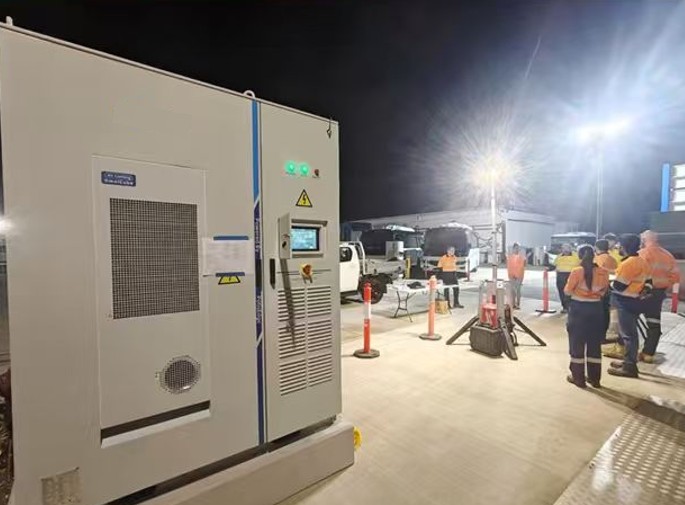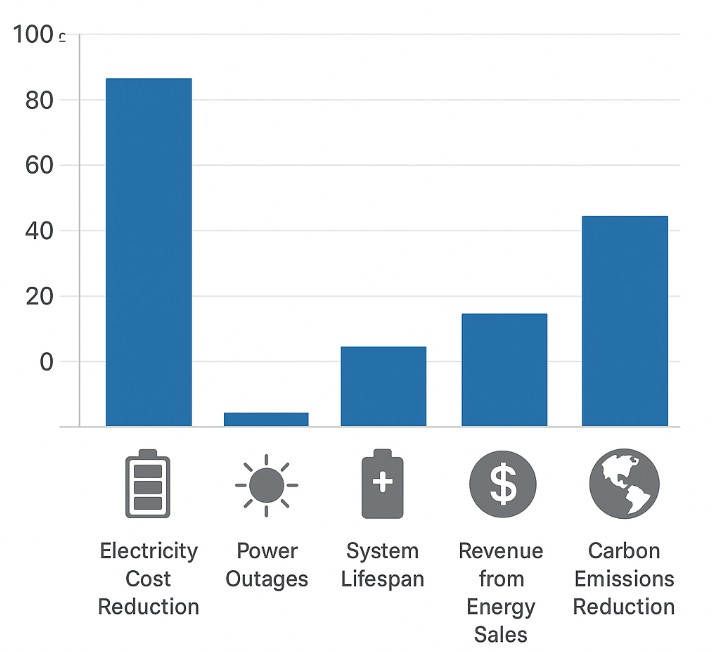

Au cours des dernières années, systèmes de stockage d'énergie solaire (ESS) Les systèmes de stockage d'énergie solaire sont devenus un élément clé des solutions énergétiques hors réseau et hybrides dans les régions isolées. Cette étude de cas met en lumière l'impact transformateur du déploiement d'une solution de stockage d'énergie solaire commerciale dans un complexe commercial isolé du Monténégro.
Le site, situé à la périphérie de Pljevlja, dans le nord du Monténégro, était constitué d'un petit parc industriel abritant un centre logistique, un entrepôt frigorifique et une usine de conditionnement. Ces entreprises étaient régulièrement confrontées à des coupures de courant dues à la fiabilité limitée du réseau et à la demande croissante d'énergie. Les générateurs de secours alimentés au fioul étaient coûteux, bruyants et polluants, ce qui aggravait encore les activités.
Fin 2024, une initiative conjointe entre YTElect et une coopérative énergétique régionale a conduit à l'installation d'un Système de stockage d'énergie solaire de qualité commerciale Système visant à renforcer l'indépendance énergétique et la stabilité opérationnelle. L'objectif était non seulement de stabiliser l'approvisionnement en électricité, mais aussi de servir d'exemple aux autres PME de la région en quête de solutions énergétiques durables.
La solution déployée comprenait :
Panneau solaire photovoltaïque sur toit de 180 kW répartis sur trois bâtiments
Système de stockage de batterie au lithium fer phosphate (LiFePO4) de 215 kWh
Onduleurs hybrides triphasés pour gérer des charges variables
Système de gestion de l'énergie (SGE) pour l'analyse prédictive et la répartition intelligente
Le système de stockage d'énergie (ESS) a été conçu pour assurer l'écrêtement des pointes de consommation, le transfert de charge et une alimentation de secours jusqu'à 24 heures pour les systèmes critiques. Le logiciel EMS a été intégré aux compteurs intelligents, permettant aux gestionnaires d'installations de suivre les tendances de consommation et d'optimiser la planification de la charge.
Le projet a rencontré plusieurs obstacles :
Intégration à l'infrastructure du bâtiment existante configurations électriques personnalisées requises.
Forte variabilité de la consommation d'énergie dans différentes entreprises, une priorisation de charge dynamique est requise.
Conformité aux normes de sécurité et de réseau de l'UE Des tests et une certification approfondis ont été nécessaires.
Conditions météorologiques saisonnières dans le nord du Monténégro, y compris les longs hivers, des angles d'inclinaison PV optimisés et une isolation robuste des batteries étaient nécessaires.
Les ingénieurs d'YTElect ont utilisé des algorithmes EMS adaptatifs et une surveillance en temps réel pour optimiser les performances du système. Une main-d'œuvre locale a été formée à la maintenance de base, garantissant ainsi la pérennité du système après l'installation.
Trois mois après l’installation, le complexe a signalé :
70 % de réduction des coûts d'électricité par l'autoconsommation et la gestion de la demande de pointe
Zéro temps d'arrêt imprévu pendant les coupures de courant
Augmentation de la durée de vie des équipements en raison de la stabilisation de la tension
Nouvelle source de revenus en vendant l'énergie excédentaire au réseau
Le centre logistique et l'entrepôt frigorifique ont tous deux obtenu la certification d'efficacité énergétique ISO 50001, témoignant de leur engagement en faveur du développement durable. De plus, les employés ont bénéficié d'un environnement de travail plus stable, avec une alimentation électrique ininterrompue pour les systèmes de réfrigération, les équipements informatiques et les lignes de production.
D’un point de vue environnemental, le projet a abouti à une réduction annuelle de 120 tonnes d'émissions de CO₂ , soit l'équivalent de la plantation de près de 5 000 arbres. La solution ESS a démontré que les installations commerciales des régions semi-rurales peuvent contribuer significativement aux objectifs du Monténégro en matière d'énergies renouvelables.

Le cas de Pljevlja souligne l'importance de solutions ESS sur mesure pour les petites et moyennes entreprises (PME). Contrairement aux parcs solaires à grande échelle, les installations commerciales doivent trouver un équilibre entre coût, évolutivité et flexibilité opérationnelle. Les principaux points à retenir sont les suivants :
Les investissements ESS peuvent être rentabilisés en 5–7 ans lorsqu’il est associé à des marchés énergétiques dynamiques.
La combinaison du photovoltaïque sur le toit et du stockage sur batterie offre une résilience face au manque de fiabilité du réseau et à la hausse des prix de l’énergie.
L’engagement communautaire et la formation locale garantissent une adoption plus fluide et la durabilité à long terme du système.
Le projet de parc industriel de Pljevlja démontre l'évolutivité et l'efficacité des systèmes de stockage d'énergie solaire commerciaux dans les régions isolées ou sous-connectées au réseau. En optimisant la consommation d'énergie et en garantissant une alimentation électrique fiable, ces systèmes soutiennent la croissance économique tout en réduisant l'impact environnemental.
YTElect continue de proposer des solutions ESS innovantes adaptées à divers environnements commerciaux en Europe et au-delà, et prévoit de reproduire des projets similaires dans les Balkans et en Europe de l'Est. Avec la maturité des technologies renouvelables, les ESS solaires sont en passe de devenir un moteur essentiel de la croissance industrielle durable dans les zones mal desservies.
abonnez-vous à nous pour profiter des prix des événements et obtenir certains des meilleurs prix.
 réseau ipv6 pris en charge
réseau ipv6 pris en charge

